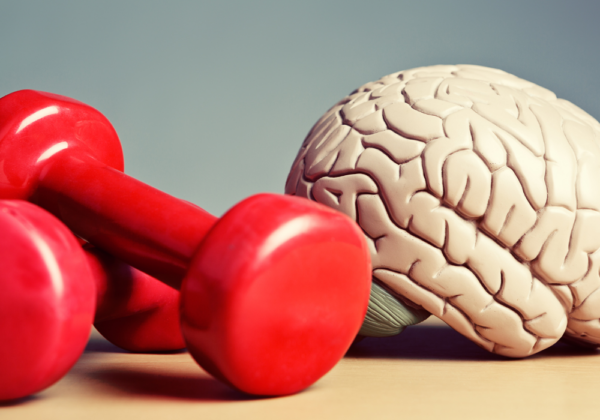In our fast-paced world, the importance of balancing mental and physical health cannot be overstated. These two aspects of well-being are intricately connected and play a crucial role in our overall quality of life. A harmonious balance between mind and body can lead to greater happiness, productivity, and longevity.
 Understanding the Importance of Mental and Physical Health
Understanding the Importance of Mental and Physical Health
Mental and physical health are the twin pillars of a fulfilling life. While physical health often takes center stage with its visible and immediate impact, mental health is equally vital. Mental well-being influences our thoughts, emotions, and behaviours, affecting how we handle stress, relate to others, and make choices.
Good mental health isn’t just the absence of mental disorders; it’s about feeling good and functioning well. Similarly, physical health involves more than just the absence of disease; it encompasses a state of complete physical well-being. Together, these dimensions of health contribute to a holistic sense of well-being.
The Bi-directional Relationship Between Mental and Physical Health
The relationship between mental and physical health is bi-directional, meaning they impact each other in numerous ways. Poor mental health can lead to physical ailments, and physical health issues can take a toll on mental well-being. This interplay underscores the need for an integrated approach to health care.
For example, chronic stress, a mental health issue, can lead to physical problems like high blood pressure, heart disease, and a weakened immune system. Conversely, a physical condition such as chronic pain can lead to mental health issues like depression and anxiety. Understanding this relationship helps in developing comprehensive treatment plans that address both aspects of health.
Common Health Conditions Stemming from Poor Mental Health
Depression and Its Physical Manifestations
Depression is more than just feeling sad; it’s a serious mental health condition that can have profound physical effects. Those suffering from depression often experience chronic fatigue, sleep disturbances, and a weakened immune system. The lack of energy and motivation can lead to neglect of physical health, exacerbating the condition.
Anxiety and Its Physical Toll
Anxiety disorders, characterized by excessive worry and fear, can also manifest physically. Symptoms include rapid heartbeat, muscle tension, and digestive issues. Chronic anxiety can lead to long-term health problems like cardiovascular diseases and gastrointestinal disorders, highlighting the need for effective management strategies.
Stress and Its Health Implications
Prolonged stress affects nearly every system in the body. It can cause headaches, high blood pressure, and sleep problems. Stress hormones like cortisol can disrupt bodily functions, leading to serious health issues if not managed properly. Recognizing the signs of stress and addressing them early can prevent these complications.
How Physical Health Influences Mental Health
 The Role of Exercise
The Role of Exercise
Regular physical activity is a powerful tool for improving mental health. Exercise releases endorphins, the body’s natural mood lifters, and can reduce symptoms of depression and anxiety. Engaging in physical activities, whether it’s a brisk walk, yoga, or strength training, can significantly boost mental well-being.
Nutrition and Mental Health
A balanced diet is essential for maintaining mental health. Nutrient-rich foods like fruits, vegetables, whole grains, and lean proteins provide the building blocks for brain function. Deficiencies in essential nutrients like omega-3 fatty acids, B vitamins, and magnesium can lead to mental health issues, emphasizing the importance of a healthy diet.
The Importance of Sleep
Quality sleep is crucial for both physical and mental health. Sleep disorders like insomnia can lead to mental health issues such as depression and anxiety. Conversely, poor mental health can disrupt sleep patterns. Establishing good sleep hygiene practices can improve overall well-being.
Strategies for Enhancing Both Mental and Physical Health
Holistic Approach to Healthcare
Adopting a holistic approach to healthcare involves addressing both mental and physical health simultaneously. This can be achieved through regular medical check-ups, mental health screenings, and adopting healthy lifestyle practices. Holistic healthcare recognizes the interconnectedness of mind and body, promoting overall well-being.
Practical Tips for a Balanced Life
- Exercise Regularly: Aim for at least 150 minutes of moderate-intensity exercise per week. Incorporate activities you enjoy to make it sustainable.
- Eat a Balanced Diet: Focus on whole, nutrient-dense foods. Avoid processed foods and sugars that can negatively impact both physical and mental health.
- Prioritize Sleep: Establish a regular sleep routine. Aim for 7-9 hours of quality sleep each night.
- Manage Stress: Practice stress-reducing techniques like mindfulness, meditation, or deep breathing exercises.
- Stay Connected: Maintain social connections. Engaging with a supportive community can enhance mental well-being.
The Role of Mental Health Advocacy in Public Health
Importance of Support Networks
Support networks play a crucial role in mental health advocacy. Friends, family, and support groups provide emotional backing and practical advice. They can help individuals feel less isolated and more understood, promoting mental well-being.
Raising Awareness and Policy Change
Raising awareness about mental health issues and advocating for policy changes are essential components of mental health advocacy. Public awareness campaigns can reduce stigma, encouraging more people to seek help. Policy changes can improve access to mental health services, making them more affordable and effective.
Community Involvement
Community involvement is vital for mental health advocacy. Local organizations can offer resources, support groups, and educational programs. Engaging the community in mental health initiatives can foster a culture of openness and support.
Balancing mental and physical health is essential for a fulfilling life. Understanding the bi-directional relationship between them helps in addressing health issues more comprehensively. By adopting holistic healthcare practices and advocating for mental health, we can create a supportive environment that promotes overall well-being.
Are you ready to take the next step towards better health? Prioritize your mental and physical well-being today. Whether it’s through regular exercise, a balanced diet, or seeking support from a mental health specialist, every step counts.

